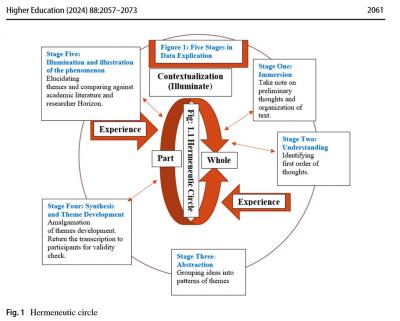I don't think you can use "Heidegger's hermeneutic phenomenology and Gadamer's hermeneutic circle" as critical thinking, which may be why "the first problem to consider is what about critical thinking makes it an unsolved mystery in Australian higher education." Though Musa Nicholas John Manning writes (17 page PDF), "there are no unified approaches or models of teaching critical thinking," there is a consensus, as Manning notes, that critical thinking is "self-regulatory judgment that gives reasoned consideration of evidence, contexts, conceptualizations, methods, and criteria, resulting in interpretation, analysis, evaluation, and inference." But in this article Manning uses "the hermeneutic approach to infer... from what the lecturers did not say, by searching for hidden clues (e.g. nonverbal cues and behaviours including gestures and tone of voice)." I would respond that these are so culturally bound as to be useless as the basis for inference. But you can see how we drift, for example, by "specifically targeting the student's interests rather 'than solely being about Argumentation'." You can't just treat critical thinking as though it were some branch of the social sciences or psychology. Anyhow, I've written on this several times, including here and here.
Today: 0 Total: 445 [] [Share]




